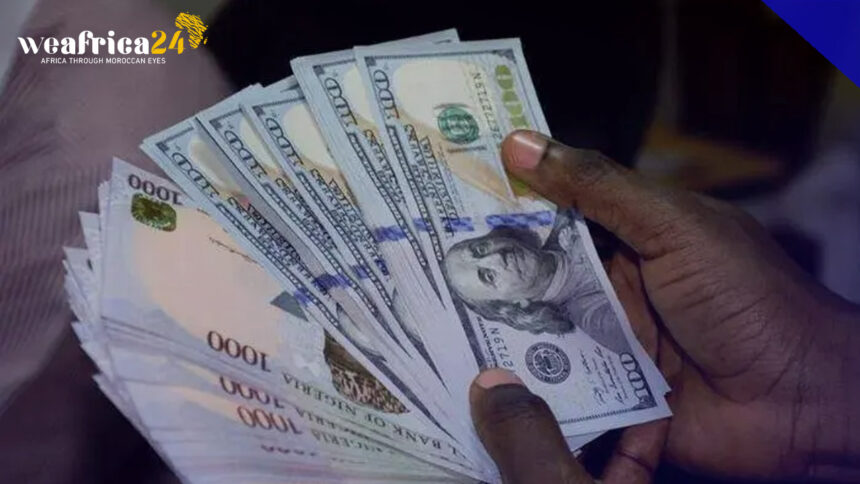This week, the currency market is shrouded in uncertainty as analysts weigh in on factors that could potentially lead to further depreciation of the Naira. The 61% depreciation witnessed last week has eroded confidence in the national currency, raising concerns about increased costs of goods and services, along with a surge in debt service.
Analysts caution that the risks of further depreciation persist unless the Central Bank of Nigeria (CBN) takes measures to curtail the growth in money supply, penalize currency manipulators, and clear the backlog of matured dollar obligations, estimated at $5 billion.
External Reserves on the Rise
Contrary to the recent depreciation trend, the nation’s external reserves, a crucial indicator for forecasting the Naira’s future exchange rate, recorded a 3.6% increase to $33.35 billion in January. This marks a significant reversal from the five-month decline that began in August.
The boost in external reserves may be attributed to the rise in Nigeria’s crude oil grade, Bonny Light, reaching $84.41 per barrel by the end of January, compared to $79.4 per barrel in December. Additionally, increased oil production in the latter part of the year likely contributed to this positive trend.
Dollar Volume Traded and Naira’s Value
Meanwhile, the volume of dollars traded in the Nigerian Foreign Exchange Market (NAFEM) experienced a 3.2% month-on-month decline to $2.14 billion in January 2024. A thorough analysis of weekly transactions revealed a fluctuating pattern throughout the month.
Despite the rise in external reserves, the Naira witnessed its lowest level last week with a 61% depreciation to N1,435.53 per dollar in the NAFEM. This drop was attributed to CBN measures aimed at promoting transparency in the forex market and addressing illegal transactions that distorted market dynamics. The gap between official and parallel market exchange rates narrowed significantly as a result of these measures.
Factors Driving Naira Depreciation
Nnamdi Nwizu, Co-Founder of Comercio Partners Limited, attributes the 61% depreciation to market forces and government interventions. The CBN’s crackdown on under-reporting of transaction rates and measures to align assets and liabilities in the same currency to prevent speculation were cited as contributing factors.
Ibukun Omoyeni, an Economist at Vetiva Capital Management Limited, believes that these measures are geared towards aiding price discovery in the official market and preventing substantial foreign exchange gaps from re-emerging.
As the currency market grapples with uncertainties, the actions and policies implemented by the CBN will play a crucial role in shaping the Naira’s trajectory in the coming weeks. The impact on Nigerians and the broader economy remains a subject of scrutiny amid these developments.







